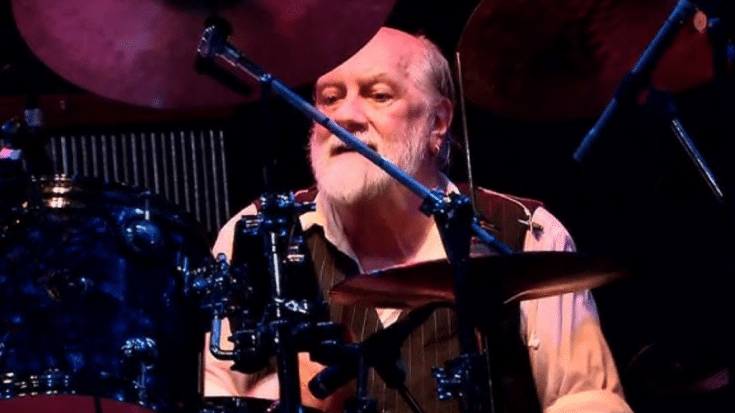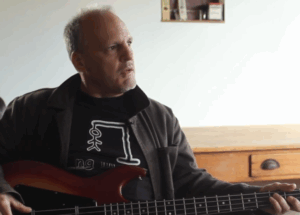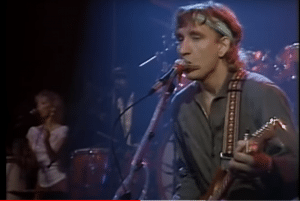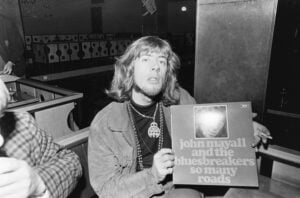9 Rock Stars Who Went Broke After Fame

via Sam Stravolemos / YouTube
The rock world is filled with stories of big paychecks and wild spending. Yet, not all musicians maintain their wealth. Below are nine classic rock stars who faced serious money troubles after reaching fame.
1. Mick Fleetwood
View this post on Instagram
Mick Fleetwood, co-founder of Fleetwood Mac, enjoyed success with hits like “Go Your Own Way” and “Rhiannon.” During the 1970s and early 1980s, he earned large sums from record sales and tours. However, his extravagant spending, combined with real estate missteps, put him in a precarious financial situation. By the mid-1980s, Fleetwood declared bankruptcy, surprising fans who assumed his wealth was secure.
He later spoke openly about his problems, attributing them to poor decisions and a lack of financial planning. Fleetwood managed to recover through ongoing reunions and tours with Fleetwood Mac. His story remains a warning about the risks of unchecked spending, even for top-selling rock stars.
2. Tom Petty
View this post on Instagram
Tom Petty, known for “Free Fallin’” and “American Girl,” had to declare bankruptcy in 1979. At the time, he was embroiled in a dispute with his record label, Shelter Records. The label’s sale to another company led Petty to resist the new terms, which he felt undervalued his work. This legal standoff caused massive debt and forced him into bankruptcy.
The experience, though stressful, motivated Petty to form his own imprint, Backstreet Records. He emerged from financial ruin with a new deal that let him maintain more control. His perseverance allowed him to keep recording hits, proving that even a brush with bankruptcy could not derail his enduring career.
3. David Crosby
View this post on Instagram
David Crosby gained fame with The Byrds and later Crosby, Stills & Nash. Despite success with songs like “Eight Miles High” and “Teach Your Children,” he fell into heavy drug use, leading to legal issues and costly rehab stints. By the 1980s, mounting debts and limited royalties put him in dire financial trouble.
He sold much of his publishing rights to cover expenses, reducing his income from past hits. Crosby also faced prison time for drug-related offenses, further complicating his finances. Although he continued to perform, the period of financial instability underscored the dangers of substance abuse and its effect on an artist’s livelihood.
4. Gregg Allman
View this post on Instagram
Gregg Allman, co-founder of The Allman Brothers Band, helped shape Southern rock with songs like “Midnight Rider” and “Whipping Post.” But multiple divorces, including one from Cher, and substance abuse took a toll on his finances. By the late 1970s, he owed large sums in legal fees and unpaid taxes.
Allman later admitted that his spending habits and lack of financial oversight contributed to his money woes. The band’s on-and-off lineup changes also disrupted earnings. Although The Allman Brothers Band enjoyed several comebacks, Allman’s money problems illustrated how personal issues can impact even the most celebrated rock stars’ bank accounts.
5. Jerry Lee Lewis
View this post on Instagram
Jerry Lee Lewis, known for “Great Balls of Fire,” made a huge impact in the 1950s. Yet his marriage to his 13-year-old cousin once removed led to a career decline, and financial troubles followed. Over time, unpaid taxes and reduced bookings pushed him toward bankruptcy.
Lewis continued to tour but found it difficult to regain his earlier level of success. Court cases and ongoing controversies further strained his finances. Though he remained an influential figure in rock and roll, his story shows how personal scandals and poor management can erode even the brightest stardom, leaving stars strapped for cash.
6. Meat Loaf
View this post on Instagram
Meat Loaf shot to fame with “Bat Out of Hell” in 1977, one of the best-selling albums in history. Despite that success, he filed for bankruptcy in the early 1980s after lawsuits from former collaborators. Legal disputes and canceled shows drained his resources, leaving him financially strained.
He bounced back in 1993 with “Bat Out of Hell II: Back into Hell,” featuring the hit “I’d Do Anything for Love (But I Won’t Do That).” Although this comeback improved his finances, the period of bankruptcy illustrated how sudden fame, combined with complicated contracts, can lead to massive money troubles in rock music.
7. Dee Snider
View this post on Instagram
Dee Snider, frontman of Twisted Sister, reached fame in the mid-1980s with hits like “We’re Not Gonna Take It.” However, when the glam metal scene faded, Snider found himself with heavy debts. The band’s breakup in 1987 cut off a major income source, forcing him to face mounting bills.
Snider later discussed how he tried to maintain the rock-star lifestyle long after the checks stopped rolling in. He rebuilt his career through radio hosting and reality TV, but the experience taught him about the fragile nature of fame. His story remains a lesson in the importance of adapting to changing musical trends.
8. Billy Joel
View this post on Instagram
Billy Joel is often associated with piano-driven pop rock and hits like “Piano Man” and “Uptown Girl.” Yet in the late 1980s, he discovered that his ex-brother-in-law and former manager had mismanaged his funds. Joel was left with millions of dollars in debt, forcing him to file lawsuits to recoup some losses.
The ordeal highlighted the risks artists face when they entrust finances to close associates. Joel eventually recovered by touring extensively and managing his money more carefully. His brush with financial ruin underscores how a rock star’s fortunes can crumble if business matters are handled poorly, even when their music remains popular.
9. Vince Neil
View this post on Instagram
Vince Neil, lead vocalist of Mötley Crüe, enjoyed massive success during the band’s heyday with albums like “Shout at the Devil” and “Dr. Feelgood.” But personal and legal problems, including drunk-driving convictions, costly lawsuits, and lavish spending, drained his funds. When Mötley Crüe’s popularity dipped in the late 1990s, Neil struggled to maintain his extravagant lifestyle.
He attempted solo projects and reality TV to bring in revenue, but critics said his performances were inconsistent. Although the band later reunited for farewell tours, Neil’s financial setbacks se













